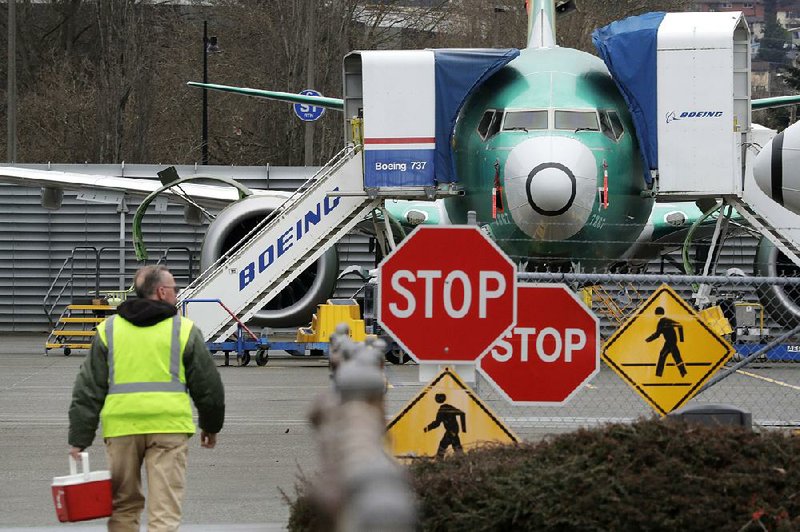Since the second fatal 737 Max crash, in Ethiopia in March, and the subsequent worldwide grounding of the jet, Boeing has suffered a precipitous fall.
Ongoing investigations of the crashes have spotlighted the badly flawed design of the Max's flight-control system and a largely self-certifying oversight regime that failed to catch the flaws. Congressional investigators are combing internal Boeing documents for evidence of malpractice, and a Department of Justice investigation means even a criminal indictment is not ruled out.
Through it all, said Richard Aboulafia, vice president of analysis at aviation consulting firm Teal Group, Boeing has displayed "an absence of leadership, an absence of strategy and an inability to communicate."
Although newly ousted Chief Executive Officer Dennis Muilenburg was an engineer, he stuck closely to the financial engineering playbook of his predecessor, Jim McNerney. Whistleblowers and leaked documents have raised damaging accusations that management drove too relentlessly to cut costs and deliver on schedule.
Boeing's proposed fix for the Max -- making sure the flight-control system that went haywire in the crashes has multiple redundancies -- is taking much longer than anticipated to ensure the software is bug-free and hides no pathways to another single-fault failure.
It looks like the grounding of the Max will stretch into a full year.
Aboulafia believes Boeing must not only steady itself by fixing the Max and restarting production, but also then must follow up as soon as practical to secure its future by launching an all-new airplane.
REVERSAL OF FORTUNE
In fall 2018, Boeing was riding high, raking in cash from ever-accelerating 737 production and widely seen as having the upper hand strategically over Airbus.
Boeing's Max had been launched late but was catching up on the Airbus A320neo, and in 2019 Boeing anticipated flying its new 777X and launching a "New Midmarket Airplane" -- a prospective 797.
Even after the October 2018 deadly crash of Lion Air JT610, the stock kept climbing until March when Muilenburg could boast that the share price had tripled during his tenure. But with the second crash and the worldwide grounding, Boeing's dominant position swiftly crumbled. The stock is now down a quarter from its high.
Delivery and sales numbers show a stark divergence of fortune with rival Airbus.
Through November this year, Airbus had 718 net orders and delivered 725 aircraft, while Boeing booked just 56 net orders and delivered 345.
In the crucial single-aisle category, Airbus delivered 578 of its A320 family of planes and Boeing just 121 single-aisle 737s. About 400 more Maxes were built that cannot be delivered until regulators clear the jet.
With Boeing sales stalled, Airbus raked in orders for its largest single-aisle jet, the A321neo, and launched new versions with extra fuel tanks to offer significant extra range.
The economics of the A321neo are forcing a shift away from larger, twin-aisle jets, which are much more expensive to buy and to operate. The jet's order backlog has swelled to more than 3,200 airplanes as "the middle market has gotten way bigger than anyone expected," said Aboulafia.
But at Boeing, any new airplane remains just an idea.
And the new 777X, delayed by engine-development problems, won't fly until sometime next year.
Stan Sorscher, retired Boeing engineer and longtime policy analyst with Boeing's white-collar union, the Society of Professional Engineering Employees in Aerospace, describes a shift at Boeing over the past two decades from an engineering culture that strove for quality, high performance and problem-solving during development of a new airplane, to one focused narrowly on cost cutting.
Sorscher said that has led to major failures on Boeing's latest two major airplane development programs -- first the heavily outsourced 787 Dreamliner and then the minimally upgraded 737 Max. Both planes had to be grounded over safety issues.
Sorscher said Boeing had built up a superb engineering culture through building new planes every 10 years or so and passing on the knowledge through generations of engineers, but "we've now had two decades of workers who have not had the experience of going through a good, high-performance development program."
BOEING AT BAY
As 2019 ends, Boeing is paralyzed by the Max crisis.
After months of rosy declarations from Muilenburg that the Max fix was close to approval, FAA boss Steve Dickson in December told Muilenburg to be more realistic. In response, Boeing finally announced a complete halt to the 737 Max assembly line in Renton, Wash., until further notice. The board fired Muilenburg shortly after and appointed company Chairman Dave Calhoun to take over as CEO.
Now Boeing must wait for FAA clearance while it braces for compensation negotiations with suppliers and airline customers. Its leverage is limited: Boeing needs its suppliers to maintain capacity to restart and ramp up production again. It needs airlines to keep their Max orders.
Yet Boeing faces hostility from all quarters.
It had already alienated many of its suppliers long before the crashes, as it relentlessly pressed them to lower their prices.
Major supplier Spirit AeroSystems in Wichita, Kan., had kept things running well by maintaining a production rate of 52 fuselages per month even when Boeing cut its rate to 42 jets per month. The Renton shutdown forced Spirit to halt production completely.
Boeing's airline customers, strung along for months, have lost patience. U.S. pilot unions have displayed open anger at Boeing.
"Boeing has no friends anywhere," said the former senior company leader.
On top of this, when the FAA finally gives the Max the OK to fly -- late February or early March is the new target -- it will be a daunting logistical challenge to restart the global supply chain and perform the maintenance needed to get the backlog of parked airplanes back in the air and delivered.
Even assuming the FAA's approval doesn't slip further, some of the parked jets may remain undelivered through next year. It could be 2022 before Boeing's Renton plant is back to normal.
Business on 12/31/2019
